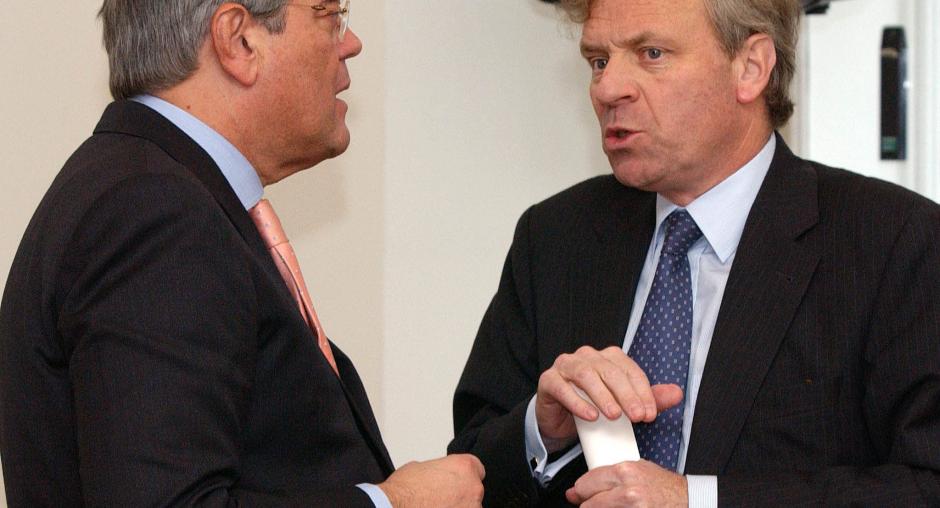The Netherlands takes over OSCE Chairmanship

VIENNA/THE HAGUE, 7 January 2003 - The Netherlands will make the fight against trafficking in human beings, weapons and drugs a key focus of its Chairmanship of the Organization for Security and Co-operation in Europe (OSCE), which began on 1 January.
"The Netherlands has decided to focus attention on trafficking in all its manifestations because it constitutes a growing threat to stability and security in the OSCE area, causing deep human distress, economic distortion and social dislocation," said the new OSCE Chairman-in-Office, Netherlands Foreign Minister Jaap de Hoop Scheffer.
"Trafficking involves organized and international networks of criminals. None of the 55 OSCE participating States can tackle trafficking by itself. We need to control our borders, make sure police recognize the problem and are properly trained to act against it and ensure that the necessary laws are in place so prosecutors and courts can pursue the criminals and protect the victims. In short: prevention, protection and prosecution."
The fight against trafficking fits with the concept of "human security" which will underpin the one-year Dutch Chairmanship, the CiO said. "Human security is a combination of peace and the rule of law."
Putting the concept of human security at the centre of attention shows that the Netherlands as CiO is serious about providing security for individuals as well as for minorities and other socially vulnerable groups, Minister de Hoop Scheffer said. These groups should be offered protection through stronger national institutions, appropriate legislation and the rule of law.
During its year at the helm, the Netherlands believes that by streamlining the OSCE's activities and focussing on its specialized institutions and field missions as an engine of change, a contribution can be made to strengthening democracy throughout the OSCE area.
Every country needs a functioning parliament, an independent judiciary, a modern police force at the service of the country's citizens, professional and objective media as well as a strong civil society. In the best traditions of the OSCE, the Netherlands will continue to take an active stance on human rights issues.
The Dutch Chairmanship will also do what it can to help resolve some of the as yet unresolved conflicts in the OSCE region, such as Transdniestria (Moldova), where recent talks have appeared to be making some progress. "Prospects of resolving this and other so-called frozen conflicts will very much depend on factors that the Netherlands cannot influence but we will remain alert to any possible ways of promoting solutions," Minister De Hoop Scheffer said.
The new Chairman-in-Office will formally present the intentions of the Netherlands OSCE Chairmanship to the Permanent Council in Vienna on 13 January, when he will also meet the Troika ministers and OSCE Heads of Mission. A news conference is scheduled for 12:30 on 13 January, details of which will be announced later.
For further details, please see the homepage of the Netherlands OSCE Chairmanship.
